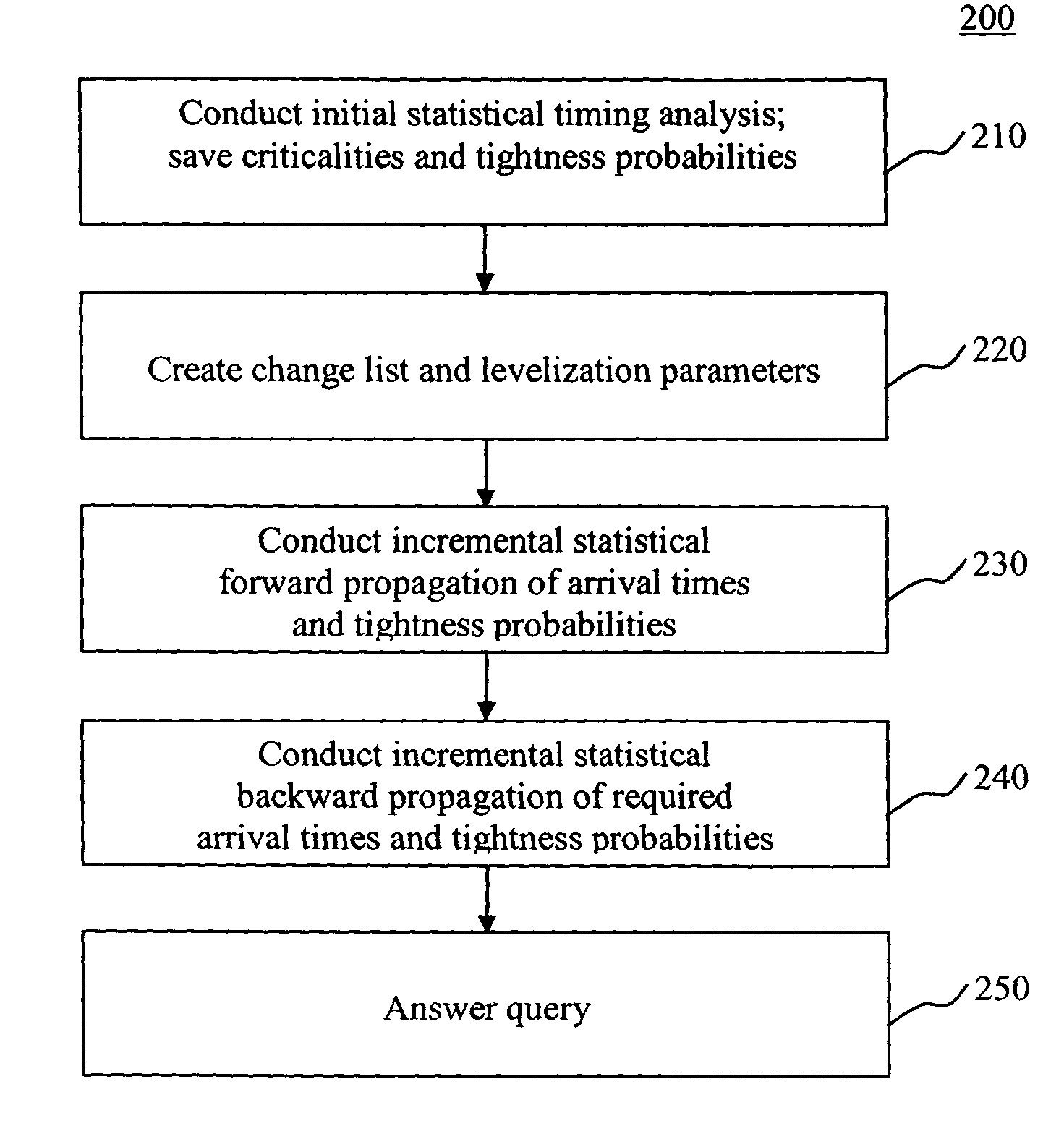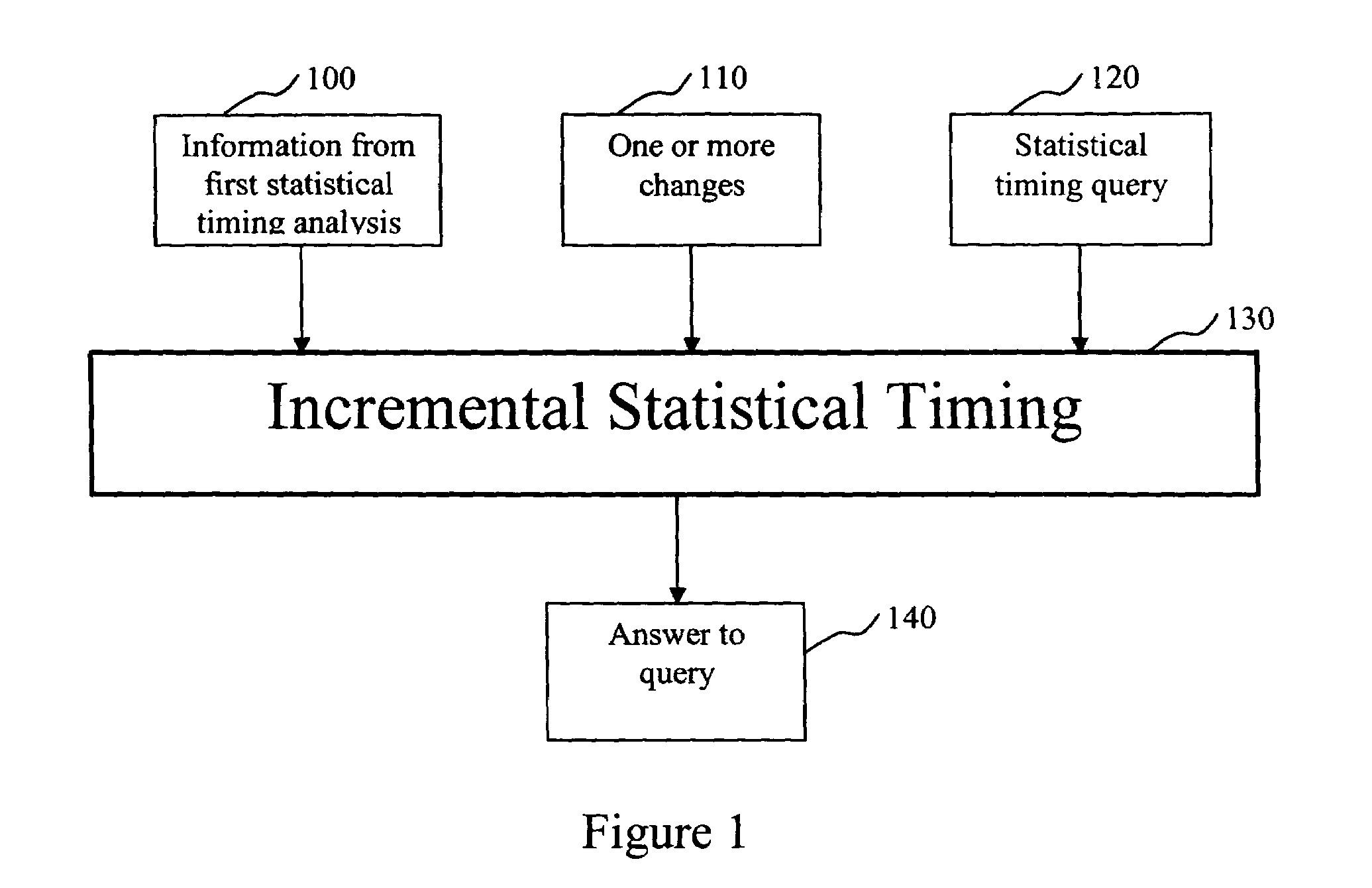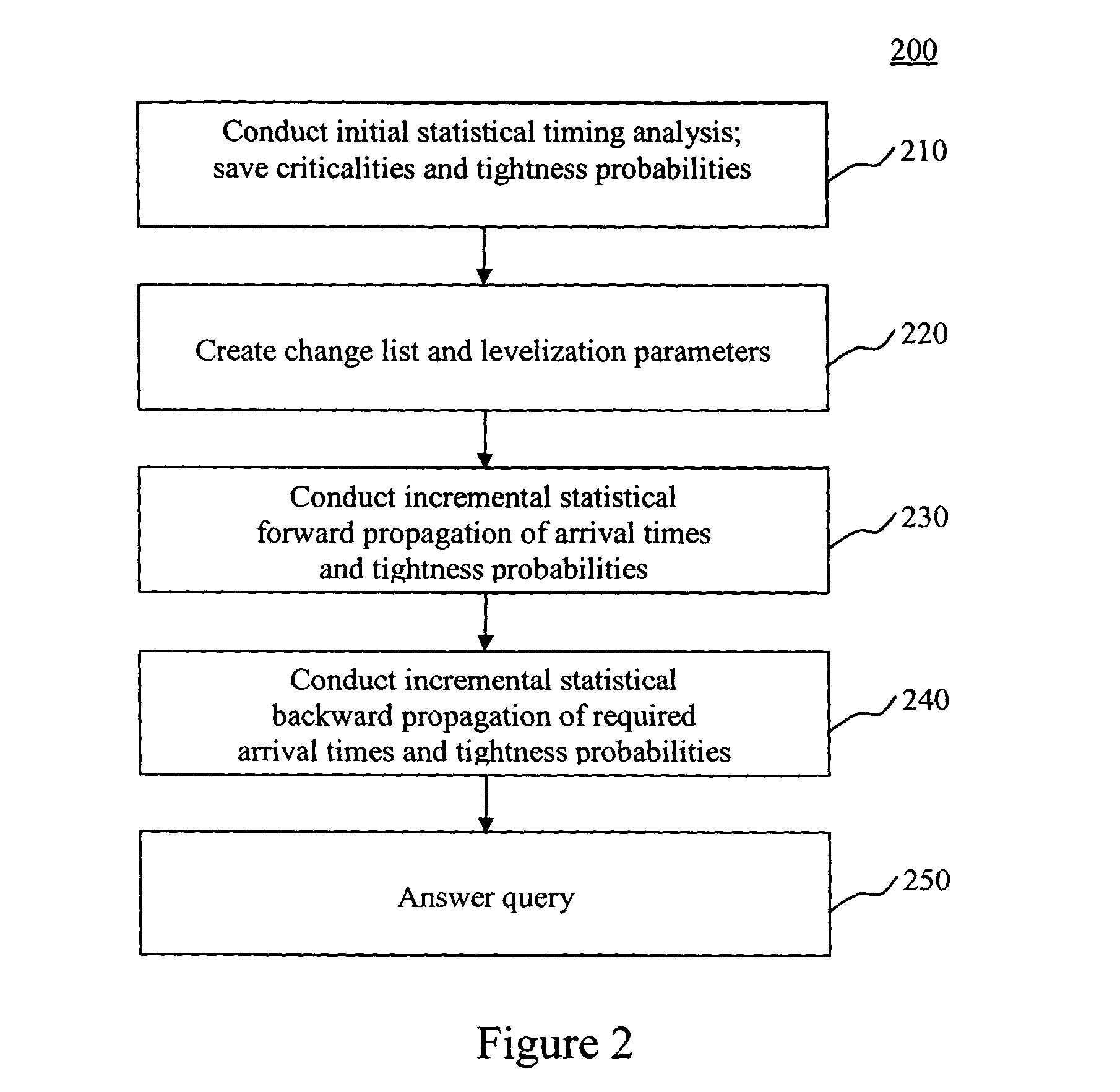System and method for incremental statistical timing analysis of digital circuits
a technology of incremental statistical timing analysis and digital circuits, applied in the field of system and method for incremental statistical timing analysis of digital circuits, can solve the problems of inability to correctly account for correlations, -art methods, and inapplicability of prior-art methods in practice, and achieve the effect of efficient and incremental updating and efficient respons
- Summary
- Abstract
- Description
- Claims
- Application Information
AI Technical Summary
Benefits of technology
Problems solved by technology
Method used
Image
Examples
Embodiment Construction
[0032]An inventive incremental statistical timing flow is shown in FIG. 1. Incremental timing pre-supposes that an initial (or first) statistical timing of an electrical circuit has already been conducted. Statistical timing implies timing of the circuit in the presence of statistical fluctuations of delays. The delay variations are modeled as functions of global sources of variation as well as random (independent) sources of variation. The information from the previous statistical timing (including all inputs and outputs of the first statistical timing analysis), box 100, is an input to the incremental statistical timing. See C. Visweswariah, “System and Method for Probabilistic Criticality Prediction of Digital Circuits,” application Ser. No. 10 / 666,470 U.S. patent application Ser. No. (to be assigned) filed on Sep. 18, 2003, incorporated by reference above.
[0033]One purpose of incremental statistical timing is to respond to timing queries after one or more changes is / are made to ...
PUM
 Login to View More
Login to View More Abstract
Description
Claims
Application Information
 Login to View More
Login to View More - R&D
- Intellectual Property
- Life Sciences
- Materials
- Tech Scout
- Unparalleled Data Quality
- Higher Quality Content
- 60% Fewer Hallucinations
Browse by: Latest US Patents, China's latest patents, Technical Efficacy Thesaurus, Application Domain, Technology Topic, Popular Technical Reports.
© 2025 PatSnap. All rights reserved.Legal|Privacy policy|Modern Slavery Act Transparency Statement|Sitemap|About US| Contact US: help@patsnap.com



